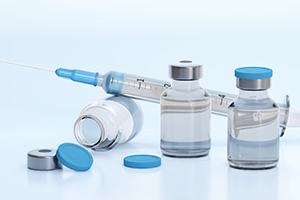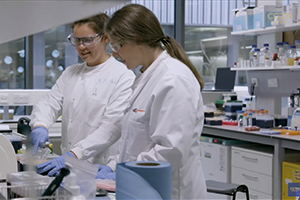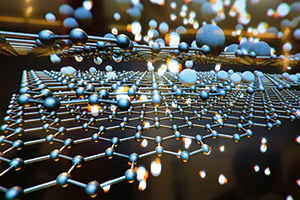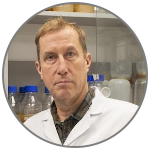Researchers in the School of Biological Sciences and across Cambridge are driving innovation in nanomedicine, drug delivery, and precision medicine. Our work is comprehensive, spanning RNA and protein therapies to smart nanoparticles designed with Click chemistry that can enable highly targeted drug delivery inside the body. Combining these therapeutic advances with deep biological understanding, and with close links with clinical and industry colleagues, Cambridge is uniquely positioned at the forefront of discovery science and transformative healthcare.
Cambridge Nanomedicine Ecosystem
Our scientific excellence in cellular, molecular and tissue biology, nanotechnology innovation and clinical application is driving new opportunities for translation and clinical impact in some of the most pressing disease areas, including cancer, neurodegenerative diseases and cardiovascular disorders. Working closely with lived experience partners, industry collaborations and policy makers, the Cambridge nanomedicine ecosystem is poised to transform the future of medicine.
Recent Highlights
#Research
New vaccine effective against coronaviruses that haven’t even emerged yet
Researchers have developed a new vaccine technology that has been shown in mice to provide protection against a broad range of coronaviruses with potential for future disease outbreaks - including ones we don’t even know about. This is a new approach to vaccine development called ‘proactive vaccinology’, where scientists build a vaccine before the disease-causing pathogen even emerges.
#Media
Ioanna Mela, the DNA-folding superbug-killer
Ioanna Mela, a researcher working on tiny devices made from intricately folded DNA strands, can make antibiotics work better and even slow the rise of superbugs. Her work so far has found the technique has slowed the growth rate of two common bugs, one of which is E. coli.
#Entrepreneurship
Cambridge spin-out receives £2.2 million to help improve cancer treatments
Vector Bioscience has received a £2.2 million investment to help it take forward its drug delivery platform designed to make RNA cancer therapies more effective. The spinout from the University’s Department of Chemical Engineering and Biotechnology has been awarded this funding by the European Innovation Council’s (EIC) ‘Transition Challenge’ investment programme which supports the development and commercialisation of innovative technologies.
Nanotechnology Entrepreneurship
Our scientists are extending their impact beyond discoveries in the lab. Their deep understanding of complex problems and innovative solutions forms the basis for new products and services, translating groundbreaking research into real-world impact.
SpyBiotech
Senesys.Bio
Vector Bioscience
Academic Leads
Contributing Researchers
Somenath Bakshi, Engineering
Graham Christie, Chemical Engineering and Biotechnology
Colin Crump, Pathology
Marc de la Roche, Biochemistry
Lorenzo di Michele, Chemical Engineering and Biotechnology
James Edgar, Pathology
David Fairen-Jimenez, Chemical Engineering and Biotechnology
Angeleen Fleming, Physiology, Development and Neuroscience
Ljiljana Fruk, Chemical Engineering and Biotechnology
Jenny Gallop, Gurdon Institute
Matthew Harper, Pharmacology
Mark Howarth, Pharmacology
Laura Itzhaki, Pharmacology
Tony Jackson, Biochemistry
Bernard Kelly, Cambridge Institute for Medical Research
Patrycja Kozik, MRC Laboratory of Molecular Biology
Janet Kumita, Pharmacology
Heike Laman, Pathology
Adria Le Boeuf, Zoology
Catherine Lindon, Pharmacology
Laura Machesky, Biochemistry
Ioanna Mela, Pharmacology
Eric Miska, Biochemistry
Julian Willis, Chemistry
Catherine Wilson, Pharmacology
Work with us
We welcome opportunities to collaborate with industry partners, policy makers and academics. If you are interested in working with us, please contact Dr Abi Herrmann, Research Strategy Manager.











